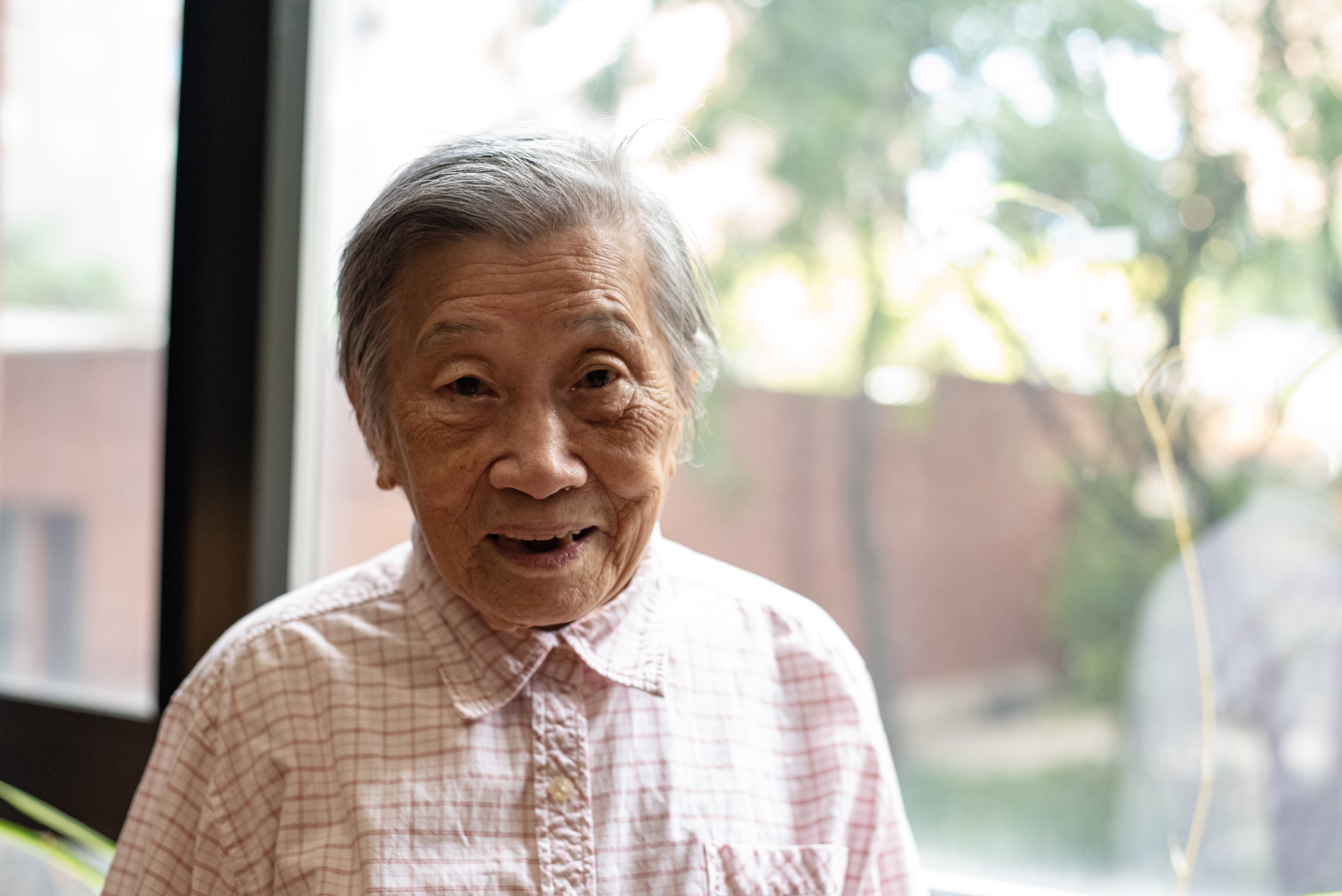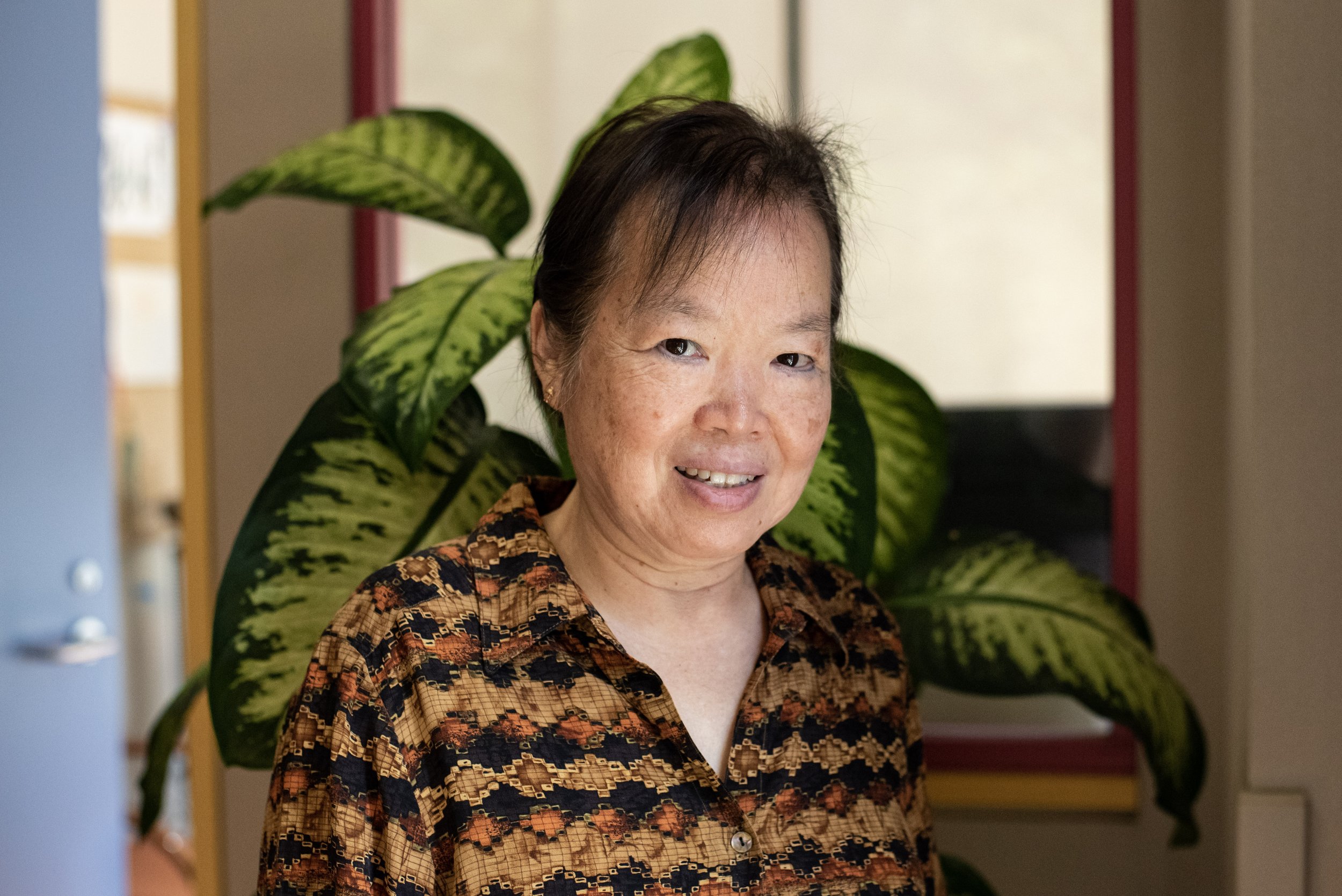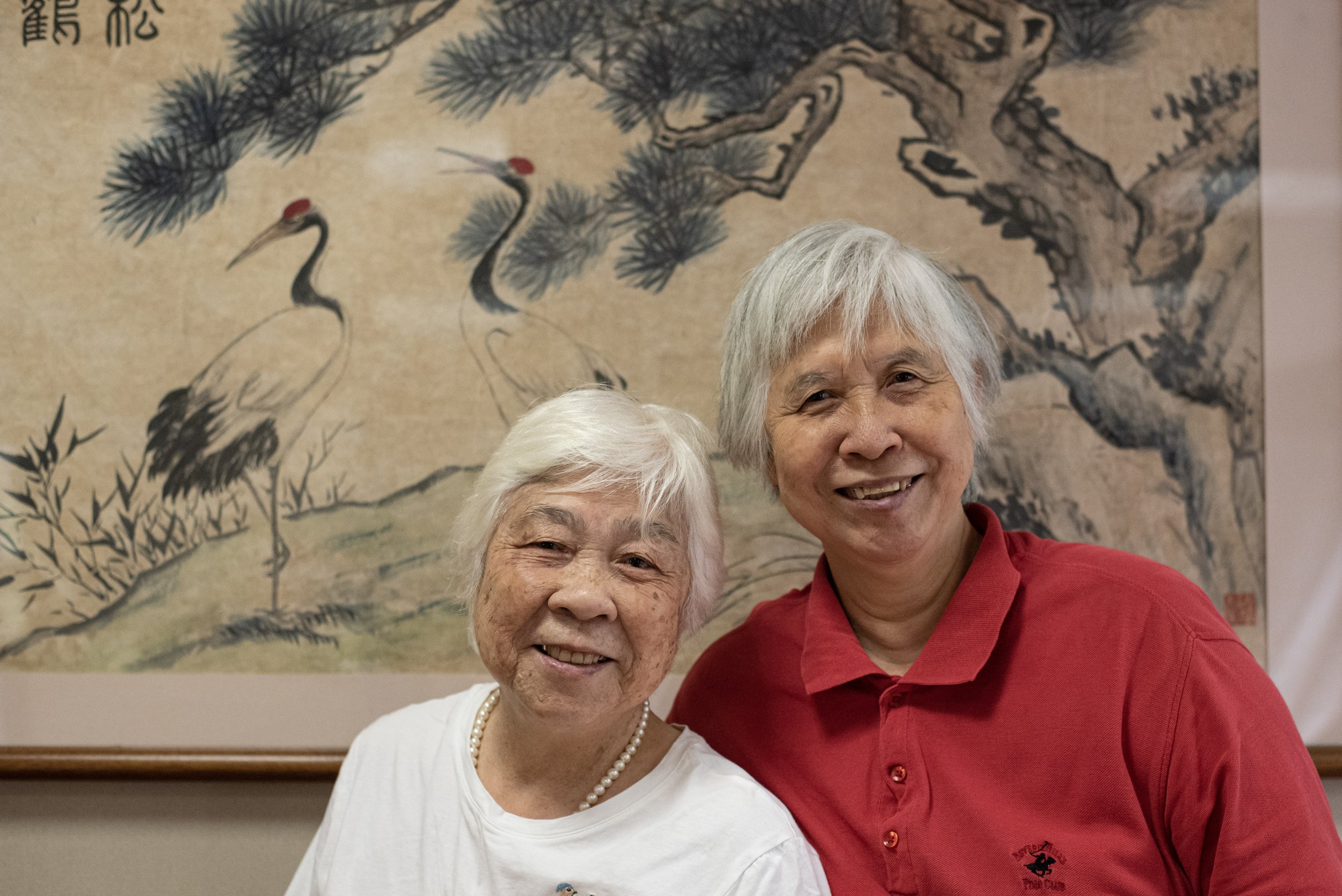Stories with Tea
Sze Wai Fong (史慧芳), Leung Tak Ling (梁德玲), Wong Sok Chin (黃素珍), Chen Lai Nang (陳麗顏), and Wong Yuk Ying (黃玉英)
have been friends for more than 40 years. They each made the journey from Southern China to New York City in the 1980s and, by fate or by luck, ended up living in the same Chinatown apartment building. Through the decades they have watched each other marry, raise families, and build lives for themselves in their adopted home of America.
During our Golden Tea program at Hamilton Madison House (HMH), these women and others shared their immigration stories and memories of tea with us. Several of them fondly recalled going to Ying Kee Tea, an upscale tea house in Hong Kong, when they had some extra money in their pockets. But on most days, a simple, home-brewed cup of tea does the trick for their customary tea practice.
Here are a few of their stories.
(Photos and stories are documented by Katie Gee Salisbury)
At 89, Sze Wai Fong (史慧芳) is one of the program’s oldest participants and enjoys drinking Longjing or Dragon Well tea. She was quiet during the first few tea sessions, but one day when a photo of an old Shanghai street was brought out and shared around the table, the memories came flooding back.
She recalled the hardships of living through the Cultural Revolution in China. Wai Fong was just 14 when her father, a doctor, died suddenly.. As the oldest child in her family, she took responsibility for her mother and younger sister and brothers and went out to find work. Wai Fong sold vegetables, socks, and towels—whatever she could find—from a roadside stall. That’s how she met her husband and together they eventually moved to Hong Kong.
Hard work has been a theme throughout her life. After 9 years in Hong Kong and giving birth to two sons, her family made the big leap to the U.S. Through friends and family, she was able to get work at a garment factory in NYC. Now her sons have families of their own. She speaks to them often.
Leung Tak Ling’s (梁德玲) earliest memory of tea is going to a well-known tea house in Guangzhou called Tao Tao Ji (陶陶居) with her father at age 4. This was a special outing for her as a little girl, she remembers she would get to eat one of those big, delicious buns they served at the tea house. Her dad, in turn, was proud to show off his adorable daughter. Friends and acquaintances would stop by their table on occasion to pinch her cheeks, one of the few rituals she did not enjoy at the tea house . For Tak Ling, drinking tea is a comforting reminder of those father-daughter outings from her childhood.
Chen Lai Nang (陳麗顏) hails from Hong Kong, and despite leaving her life there behind many years ago, she has continued to nurture her love of tea. Every morning Lai Nang brews a large thermos of Puerh tea that lasts her many cups throughout the day.
She learned this tradition from her mother who she watched brew tea daily in Hong Kong when she was a girl. Today her mother is 98 years old and still drinks tea every day. Lai Nang believes tea is the secret to her mother’s health and longevity.
Her two children who grew up in the U.S. are not as passionate about tea, but her youngest at least tries to carry on the tradition American-style—by plunging a green tea bag into a mug of steaming water.
Huang Hui Hsia (黃惠霞) and Chan Wai Jane (陳慧貞) are sisters in their 70s from Toisan in Southern China. Can you see the resemblance? They like to joke that they only know how to “boil” tea, not how to “brew” it, since they don’t exactly see themselves as experts—but they do like drinking tea with friends.
Jane was the first in their family to come to the U.S. She arrived in NYC 7 months pregnant in the middle of winter. Her husband, who had set up their apartment and gotten a job at a Chinese restaurant, told her to wait at the airport until he could pick her up after he got off work. Jane, then an intrepid young woman, took matters into her own hands and hailed a yellow taxi cab instead.
When she got to their Chinatown apartment, all she could do was wait on the stoop with her luggage since she didn’t have a key. Soon it began snowing. One of the neighbors walking down the street saw her and started up a conversation. “Are you the new bride?” she asked. The women put two and two together and the next thing Jane knew, she was being invited into the warmth of her neighbor’s home, who happened to be from the same village as her maternal grandmother. The Toisanese, Jane muses, somehow always find each other no matter where they are in the world.





